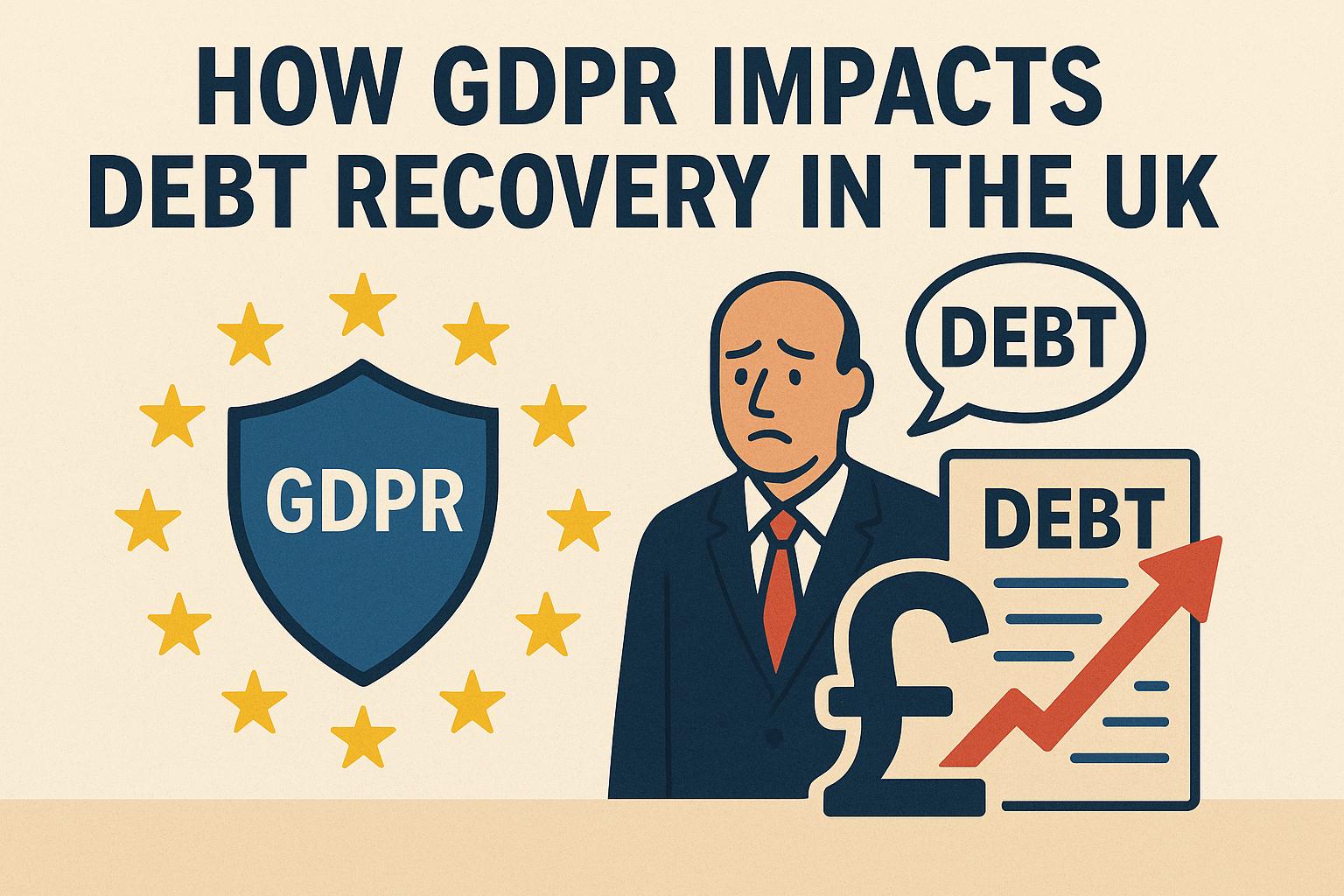
How GDPR impacts debt recovery in the UK.
Introduction
The General Data Protection Regulation (GDPR) that was enacted on May 25, 2018, has introduced a new paradigm for the handling of personal data across various sectors in the European Union (EU), with a notable impact on the debt recovery sector in the United Kingdom (UK). This regulation represents a significant overhaul of data protection laws, aiming to bolster the privacy rights of individuals. Debt recovery organizations are thus necessitated to undergo substantial alterations in their operational practices to ensure adherence to GDPR, which is pivotal for their continued lawful operation.
Understanding GDPR
The GDPR stands as one of the most extensive data protection frameworks globally and extends its jurisdiction beyond the borders of the EU. It mandates that any organization dealing with the personal data of EU citizens, irrespective of where the company is situated, must comply with its legislations. The overarching aim is to enhance individual authority over personal information, leading to a uniformly high standard of data security enforcement across all member states. A failure to comply with GDPR carries significant repercussions, potentially inviting penalties that could reach up to 4% of an organization’s annual global revenue or €20 million, whichever is greater.
GDPR’s Impact on Debt Recovery
The debt recovery landscape in the UK has been notably reshaped by the GDPR, especially concerning how data is handled and processed. There are several key areas of impact that organizations must consider:
1. Data Minimization
The principle of data minimization is crucial under GDPR, dictating that debt recovery entities should only gather and process data that is strictly necessary for achieving specific recovery objectives. This requirement encourages organizations to evaluate critically the volume and type of data they handle, thus potentially limiting the data processing to essential information only. Consequently, debt recovery agents must conduct regular assessments of their data collection procedures to ensure unnecessary data is neither processed nor stored, thereby reducing risks associated with data breaches and enhancing the overall data protection strategy.
2. Lawful Basis for Processing
Each instance of data processing within the context of debt recovery must be grounded in a lawful basis as defined by GDPR. Common grounds for legitimate processing in this sector could include legal obligations or legitimate interests. For successful GDPR compliance, it is imperative that organizations ascertain and document the legitimate basis under which each personal data set is processed. This step not only establishes a legal framework for data processing but also provides a transparent justification that aligns with the strict guidelines laid out by the GDPR.
3. Enhanced Subject Access Rights
GDPR significantly extends the rights of individuals regarding the accessibility of their personal data. Debt recovery agencies must ensure that they have clear, efficient processes to handle requests from debtors wishing to access data held about them. The regulation requires that such requests are addressed comprehensively within a designated timeframe, typically one month. This aspect of GDPR ensures transparency and can enhance trust between debtors and recovery agencies when managed effectively.
4. Data Security and Breach Notifications
Given the sensitive nature of personal data involved in debt recovery operations, robust security measures are indispensable under GDPR. Organizations are compelled to institute advanced protective mechanisms to safeguard personal data from unauthorized access or breaches. Should a data breach occur, the organization is obligated to inform the Information Commissioner’s Office (ICO) within a 72-hour window. If deemed that the breach could result in a high risk to the individual’s rights and freedoms, the affected parties must also be promptly informed. This stringent requirement underscores the critical importance of having an effective breach response plan.
Adapting Debt Recovery Practices
Debt recovery organizations are required to re-evaluate and modify their existing policies in alignment with GDPR mandates. This necessitates conducting thorough audits of current data processing activities to identify areas needing adjustment. Transparency about the ways in which data is employed is essential, as is acquiring valid consent from individuals where appropriate. Additionally, it is vital to ensure that staff are adequately trained in data protection principles to improve overall adherence to the regulation. Comprehensive documentation and maintenance of records concerning data processing activities also play a crucial role in compliance.
The Role of the ICO
In the UK, the Information Commissioner’s Office (ICO) serves as the supervisory authority responsible for enforcing GDPR compliance. It provides essential guidance and regulation oversight to organizations across sectors, aiding them in understanding and implementing best data protection practices. Moreover, the ICO addresses complaints, conducts investigations, and can impose measures or fines for non-compliance. Debt recovery firms must stay updated with guidelines and advice from the ICO website to avoid potential compliance pitfalls and to remain aligned with regulatory expectations.
Conclusion
The advent of GDPR has presented both hurdles and prospects for debt recovery operations in the UK. While the regulation intensifies the demands regarding data protection, it also advocates for more ethical, accountable, and transparent operations. Through adherence to GDPR, debt recovery firms are not only safeguarding themselves from potential legal actions and fines but are also positioning themselves to foster trust and enhance their reputation among clients and debtors. This comprehensive embrace of GDPR principles ultimately contributes to a more secure and reliable data environment, benefiting individuals and organizations alike.
- Posted by
 admin
admin - Posted in Uncategorized
 Oct, 09, 2025
Oct, 09, 2025 Comments Off on How GDPR impacts debt recovery in the UK.
Comments Off on How GDPR impacts debt recovery in the UK.
